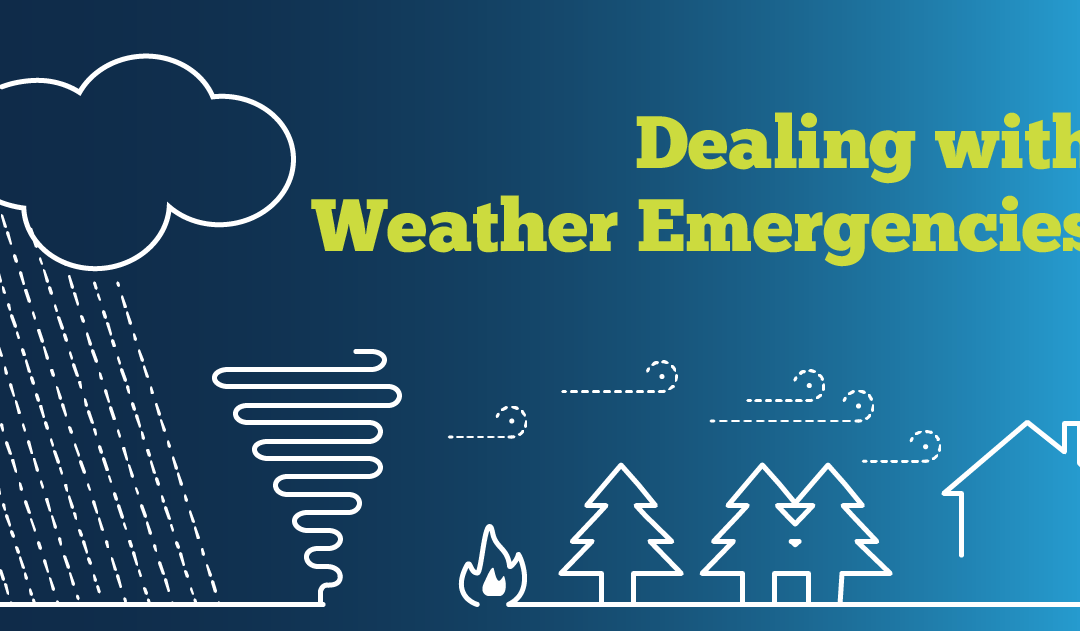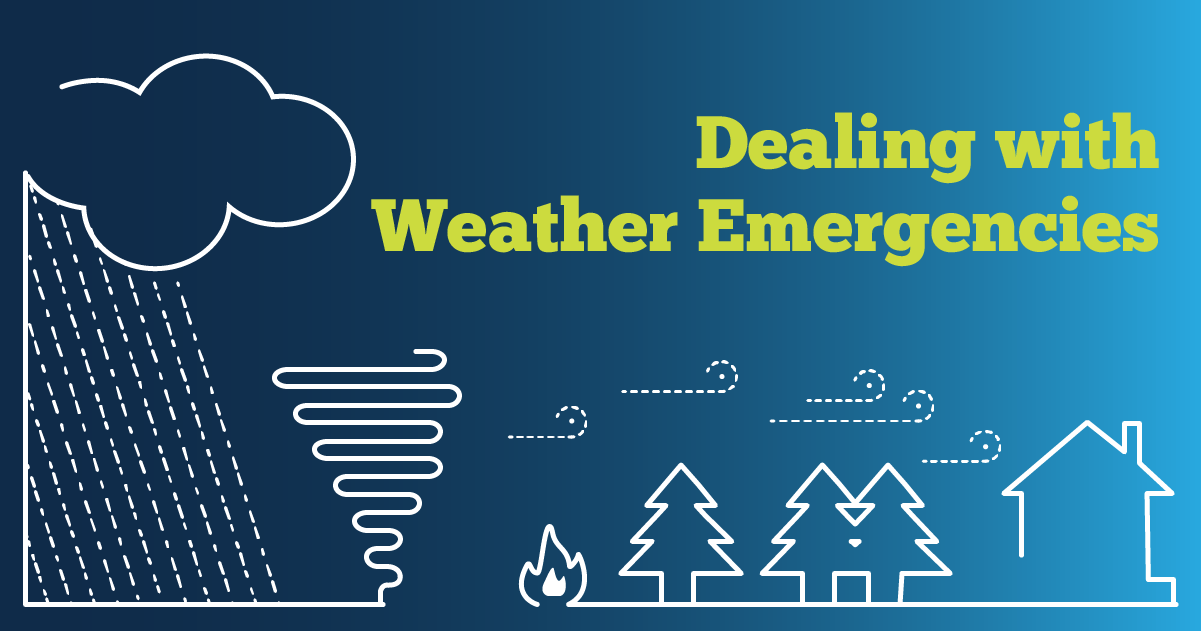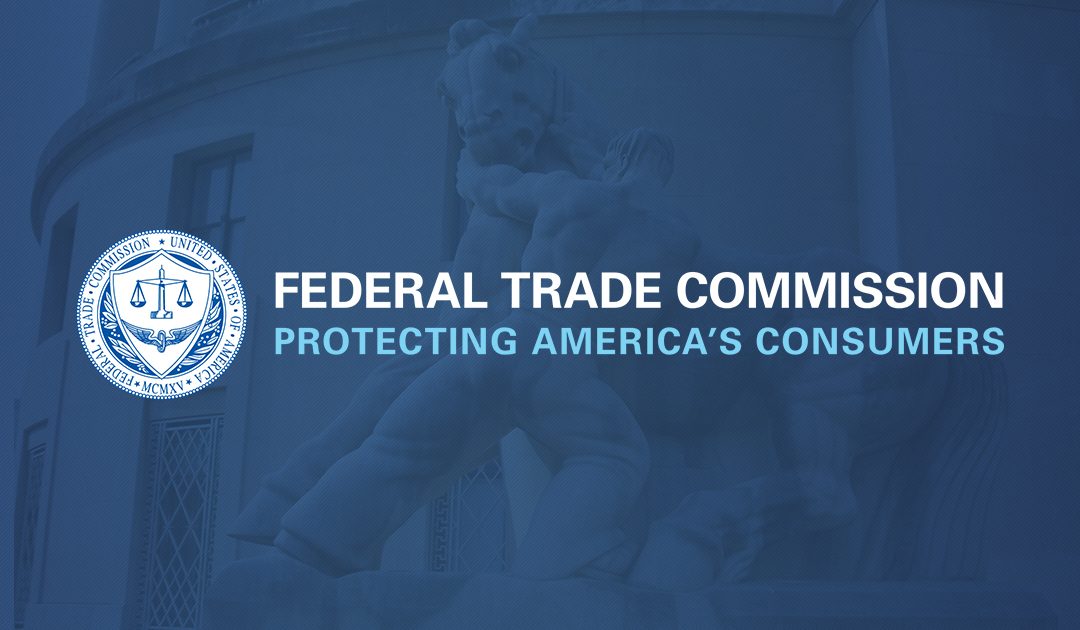by Scott Muniz | Feb 23, 2021 | Security, Technology
This article is contributed. See the original author and article here.
SonicWall has released firmware patches for SMA 100 series products in an update to its previous alert from February 3, 2021. A remote attacker could exploit a vulnerability in versions of SMA 10 prior to 10.2.0.5-29sv to take control of an affected system.
CISA encourages users and administrators to review the updated SonicWall alert and apply the necessary patches as soon as possible.

by Scott Muniz | Feb 23, 2021 | Security
This article was originally posted by the FTC. See the original article here.
Winter this year is turning out to have its own set of weather-related emergencies — and right now, all in the midst of a pandemic. Lots of us are really ready for the winter of 2021 to be over. But while we’re waiting, why not prepare (or see if you might already be prepared) for a weather-related emergency?
The FTC’s site, Dealing with Weather Emergencies, has free practical tips to help you prepare for, deal with, and recover from a weather emergency like our friends across the South are seeing. It’s mobile-friendly, so you’ll have ready access to information when and where you need it.

The page has four sections:
Active in your community? There’s a customizable one-page handout, Picking Up the Pieces after a Disaster, with key tips drawn from the FTC’s site. You can add local consumer protection and emergency service contacts and post downloadable copies for public access throughout your community.
Brought to you by Dr. Ware, Microsoft Office 365 Silver Partner, Charleston SC.

by Scott Muniz | Feb 22, 2021 | Security
This article was originally posted by the FTC. See the original article here.
Winter often brings the blues, but when it brings Arctic blasts, burst pipes, power outages, and even icicles indoors, scammers aren’t far behind with weather-related scams.
Scammers know severe weather may have shut off your electricity, heat, and water and might pose as your utility company. They might call to say that they’re sorry your power went out and offer a reimbursement, but first they need your bank account information. They might email you to say that there’s an error in their system, and you have to give them personal information so they can turn your gas on again. They could even threaten to leave your utilities shut off if you don’t send them money immediately. But those are all lies.
If you get one of these calls, texts, or emails, here are some things you can do:
- If you get a call, thank the caller and hang up. Never call a number left in a voicemail, text, or email. Instead, if you’re worried, contact the utility company directly using the number on your bill or on the company’s website. Verify if the message came from them.
- If you get a call out of the blue and the caller claims you have to pay a past due bill or your services will be shut off, never give banking information over the phone. To pay your bill over the phone, always place the call to a number you know is legitimate.
- Utility companies don’t demand payment information by email, text, or phone. And they won’t force you to pay by phone as your only option.
- If the caller tells you to pay by gift card, cash reload card, money transfer, or cryptocurrency, it’s a scam. Every time. No matter what they say.
It’s cold out there. Help protect your community by reporting any scams you see at ReportFraud.ftc.gov.
Brought to you by Dr. Ware, Microsoft Office 365 Silver Partner, Charleston SC.

by Scott Muniz | Feb 22, 2021 | Security
This article was originally posted by the FTC. See the original article here.

Just under a year ago, we told you that the U.S. Department of Education announced some flexibility to federal student loan borrowers. Understanding these options can help you make more informed decisions about paying your bills and prioritizing your debts. The benefits have been extended through September 30, 2021.
So, just to recap, what does this mean for you if you have a federal student loan?
- This program gives temporary payment relief to borrowers with qualifying federal student loans. But some federal student loans don’t qualify – for example, older Family Federal Education Loan (FFEL) program loans or Perkins Loans that are owned by the school you attended. Contact your federal loan servicer online or by phone to find out if your loans are eligible.
- If your federal loans are covered, the U.S. Department of Education has automatically placed your loans into what’s called “administrative forbearance.” That means you can stop making payments on those loans right away, up through September 30, 2021. If your payments automatically come out of your bank account, check if any payments have been processed since March 13, 2020. If they have, you may be able to get a refund as part of administrative forbearance.
- If you want to keep making payments on your qualifying federal student loan through September 30th, the interest rate is now 0%. So any payments you make during the forbearance period may help you pay off your debt faster. If you’re on an income-based repayment program and/or a forgiveness program, you should check out Federal Student Aid’s Coronavirus page to see which option makes sense for you.
- If your federal student loans are in default, the U.S. Department of Education has stopped making collection calls, and sending letters or billing statements through September 30, 2021. And if your federal loans were in default and your employer continues to garnish your wages, you’ll get a refund.
This program only applies to federal student loans. Not sure what kinds of student loans you have? Here are two things you can do to find out:
- Get a complete list of your private and federal student loans by pulling your credit report. (In fact, you can get your report for free every week through April 2021.) Read through it and find your student loans, taking note of the companies that are your lenders or loan servicers. Compare it to the full list of federal loan servicers found here.
- Confirm which of your loans are federal. Log into FSA or call the Federal Student Aid Information Center (FSAIC) at 1-800-433-3243.
One more thing: you don’t need to hire a company to help you get this student loan payment relief. The program is already in place and there’s nothing you need to do to enroll.
Updated February 22, 2021 with new information about how payment flexibilities for federal student loan borrowers have been extended through September 30, 2021.
Brought to you by Dr. Ware, Microsoft Office 365 Silver Partner, Charleston SC.

by Scott Muniz | Feb 22, 2021 | Security
This article was originally posted by the FTC. See the original article here.
National Consumer Protection Week (NCPW) 2021 is coming up next week, and we’d love for you to join us for some virtual events. NCPW is a time when the FTC joins with local, state, and national partners to bring you information and advice on scams, identity theft, and other consumer protection issues.
Here’s a preview of some events you can join:
Monday, March 1 – Friday, March 5
Follow FTC and USAGov on social media for quick, shareable consumer tips all week long.
Facebook: Federal Trade Commission, USAGov, USAGov en Español
Twitter: @FTC, @LaFTC, @USAGov, @USAGovEspanol
Instagram: @USAGov
Wednesday, March 3
2pm EST: Join us for a Facebook Live with AARP’s Fraud Watch Network on how to spot and avoid Coronavirus scams. Please join us LIVE and ask questions!
Thursday, March 4
1pm/3pm EST: Participate in our “Slam the Scam” Twitter chats on avoiding Coronavirus and imposter scams.
Join at 1pm EST for our chat in Spanish with @laFTC, @USAGovEspanol and @SeguroSocial. Use the hashtag #OjoConLasEstafas and #NCPW2021 to follow the conversation.
Join at 3pm EST for our chat in English with @FTC, @USAGov, @SocialSecurity. Use the hashtag #SlamTheScamChat and #NCPW2021 to follow the conversation.
1pm EST: Join the FTC, the Consumer Financial Protection Bureau (CFPB), and AARP’s Fraud Watch Network for a webinar on Cyber Scams & Older Adults. We’ll focus on avoiding online scams, including phishing, tech support scams and COVID-19 related scams.
7pm EST: Join us for a Facebook Live with our colleagues from the Social Security Administration’s (SSA’s) Office of the Inspector General. We’ll talk about how to spot and avoid SSA scams. Please join us LIVE and ask questions!
For more information, and to get involved, check out ftc.gov/NCPW.
Brought to you by Dr. Ware, Microsoft Office 365 Silver Partner, Charleston SC.







Recent Comments